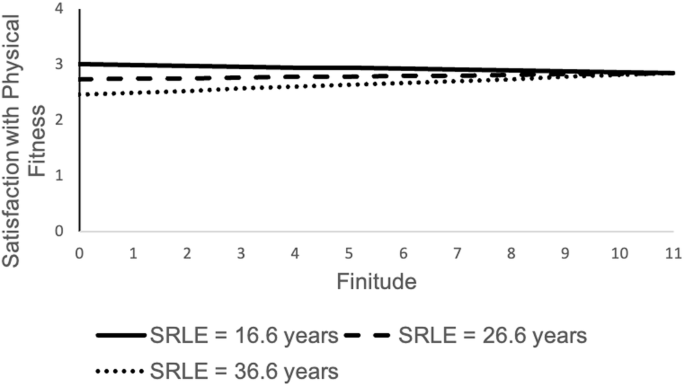
Exploring the connection between life satisfaction and the state of relaxation reveals important insights from psychological research. This connection is often emphasized in studies focusing on time perspective and mindfulness, both of which play pivotal roles in enhancing overall well-being.
Time Perspective and Life Satisfaction

Chronological age and subjective remaining life expectancy (SRLE) significantly influence life satisfaction, particularly through the lens of time perspective. The mental representation of time—whether one tends to focus on the past, present, or future—affects overall well-being. In a longitudinal study, it was found that individuals with a more concrete outlook on the future exhibited higher life satisfaction scores. Specifically, a heightened sense of 'concreteness' of future time, defined as having organized and clear future goals, was most consistently linked to increased satisfaction. Individuals expressing greater concreteness reported higher life satisfaction at various measurement points within the study[1].
This relationship suggests that how individuals perceive their future can greatly impact their current emotional state, including satisfaction levels. Conversely, feelings of obsolescence, or a sense of being out of touch with modern times, negatively correlated with satisfaction, indicating that when people feel disconnected or stagnant in their lives, their relaxation and overall well-being are compromised[1].
The Role of Mindfulness in Enhancing Well-being
Mindfulness meditation is another key component that contributes to relaxation and satisfaction. Defined as a method of training attention to achieve calm concentration and positive emotions, mindfulness encompasses two major aspects: attention and acceptance. By directing one's focus to the present moment and observing thoughts and feelings without judgment, individuals can cultivate a state conducive to relaxation.
Research has shown that mindfulness-based interventions significantly reduce stress, anxiety, and depression. For instance, a comprehensive meta-analysis highlighted that mindfulness-based cognitive therapy (MBCT) notably lowers the relapse rate in individuals with prior depressive episodes. Such findings suggest that through enhanced relaxation techniques, individuals can achieve greater emotional stability and satisfaction[2].
The physical health benefits of mindfulness extend beyond mental health; studies indicate improvements in various health-related outcomes, including a reduction in chronic pain and fatigue, suggesting a comprehensive approach to well-being that encompasses both mental and physical dimensions. For instance, gaining control over stress responses through mindfulness can lead to broader health improvements, reinforcing the connection between relaxation and overall life satisfaction[2].
Interaction of Age and Satisfaction
Interestingly, findings show that the impact of time perspective on satisfaction varies with age. While higher levels of present and past orientation can indicate a person's ability to derive meaning from life experiences, their effects on life satisfaction differ across various age groups. The results from the longitudinal study indicated that younger adults benefitted more from high concreteness and lower past orientation when gauging their satisfaction with mental fitness. Specifically, younger adults reported higher satisfaction with mental fitness on occasions where they demonstrated higher future concreteness, a tendency not as strongly reflected in older adults[1].
These results indicate that while younger individuals might struggle with time perceptions, older adults may derive satisfaction from reflecting on past accomplishments and developing a sense of serenity about life’s finitude. This nuanced understanding of age-specific responses to time perspective further emphasizes the complex relationship between satisfaction, relaxation, and individual experiences of time[1].
Personal Growth and Community Engagement
Engaging in mindfulness not only enhances individual well-being but also enriches community relationships. The practice helps individuals develop emotional resilience, which is vital for maintaining healthy relationships with family and community members. By fostering emotional wellness through mindfulness, individuals can improve relational satisfaction and contribute positively to their social environment, creating a more supportive community and enhancing overall quality of life.
Mindfulness practices encourage a shift in perspective, allowing individuals to become more attuned to their emotional states. This heightened awareness cultivates better interpersonal connections, promoting an atmosphere of relaxation and satisfaction within community interactions. Thus, the positive stress-regulating effects of mindfulness can extend beyond the individual to benefit broader social networks[2].
Conclusion
The connection between satisfaction and relaxation is profoundly influenced by how individuals perceive their time. The interplay of time perspective, mindfulness, and age provides a framework through which satisfaction can be understood. By enhancing one's future outlook and actively engaging in mindfulness practices, individuals can experience improved well-being. As research suggests, adopting these strategies may not only foster personal enjoyment and relaxation but also cultivate robust connections within communities, ultimately leading to a richer and more fulfilling life experience[1][2].
Get more accurate answers with Super Pandi, upload files, personalized discovery feed, save searches and contribute to the PandiPedia.
Let's look at alternatives:
- Modify the query.
- Start a new thread.
- Remove sources (if manually added).